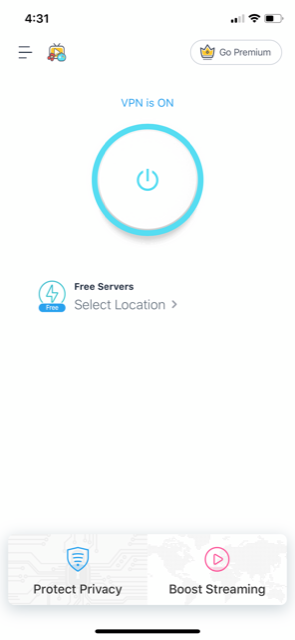MCPS monitors students’ wifi usage to help maintain safety
Many students use VPN apps during school so they can access social media and other sites that are blocked during school hours.
May 10, 2019
Everyone knows that the type of spies that are in movies are not likely to exist to the same degree that they do in the cinema, but other types of spying do exist and one of them is right under your nose. Your internet usage is being monitored, specifically, when you’re are at school. Students in our area know that there are certain sites that school wifi does not allow you to access, but what they might not know is that Montgomery County goes as far as to monitor what students are doing on their phones while on the school wifi.
In fact, this is Tom Chapman’s job. He is an Information Security and Data Privacy engineer for Montgomery County and he knows all about the procedures of the county and what information they access on the wifi servers.
“MCPS is bound by federal laws, which require that internet access provided to students be monitored, logged and restricted” said Chapman. “The office of The Chief Technology Officer continuously monitors internet traffic throughout the district to provide safe and reliable internet access to all students for educational purposes only”
While the stance of the county on this issue is very clear, the harm of these restrictions could possibly outweigh the benefits that they’re believed to create. For example, it may seem like the school day is long but considering that each class is only about 45 minutes, teachers always seem to be in a rush. With this tight schedule, anything going wrong during class could put classes days behind in learning, which is exactly what wifi restrictions can do. Everyone has had one of those days where the teacher tells you to go on a website, but the site doesn’t work for the students, only the teacher.
“Staff are able to access additional websites due to age restrictions or sites that would otherwise be necessary for teaching. Other than that, the same restrictions apply to all MCPS users” said Chapman.
This brings up another issue that students have with the wifi. It blocks random sites, some that don’t even fall into the categories that Chapman said they use to decide what is blocked. A Freshman at WCHS, who wanted to remain anonymous is one of many people who have found a workaround for these site restrictions but they also see where the county is coming from with their decision to restrict the wifi.
“I think the school wifi should restrict certain sites, especially if students are searching up inappropriate things . . . although, some sites are unreasonably blocked” said the student.
The simple way that many students have found to get around wifi restrictions and private data access is called a VPN or a “Virtual Private Network”. These easy to use apps were originally made to secure private information when sending it through a network but have now become so abundant that they have many new purposes according to LifeWire.com.
“A VPN is an app that unblocks certain sites so I can use wifi while accessing those sites and apps. I mostly use it to send snapchats since snapchat is one of the blocked apps.” said the student
VPNs are popularly used to unblock Game Pidgeon along with Facebook and Instagram. They can be used for many other things too and even prevent the county from seeing what students search on the internet, which poses a problem.
“Attempting to use VPNs to circumvent any content filter or restriction that MCPS has in place is a violation of MCPS regulation and the Manual of MCPS Computer Systems Security Procedures” said Chapman “Any user found to be attempting to circumvent MCPS security protections should be reported to the school’s principal for measures.”
This seemingly small act and possible minor violation of MCPS procedure don’t seem to be a laughing matter to the county. Nonetheless, with no way to stop students from using VPNs and no way to locate those who do use them, it seems unlikely anything will change, for better or worse, any time soon.
“It’s reasonable for the county to limit wifi usage to students because they should be focused on school rather than being distracted, but some sites and apps should never have been blocked in the first place” said the student.
Preventing distractions is a good reason for the wifi restrictions but the list of blocked sites could be troubleshot to prevent any student backlash in the future.
“MCPS works with industry-leading security experts to continuously update a list of websites that would be considered explicit or not instructionally relevant,” said Chapman.


